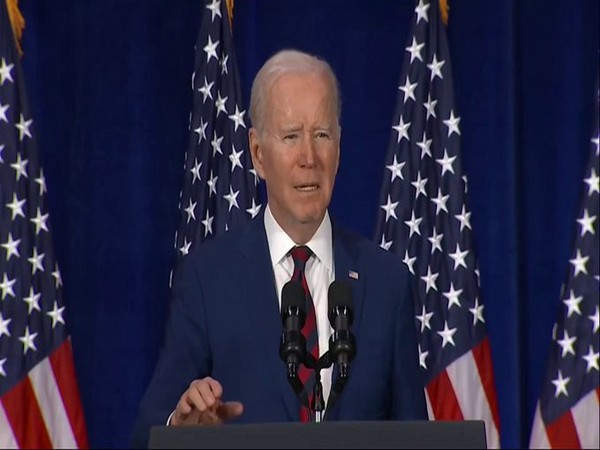
Biden calls for meeting as US to run short of cash June 1
May 02, 2023
Washington [US], May 2: The U.S. Treasury warned on Monday that it could run short of cash to pay all of the government's bills as soon as June without a debt limit increase, prompting President Joe Biden to summon the top four congressional leaders to the White House to try to avert a fiscal crisis.
A person familiar with the plans told Reuters that Biden called Republican House Speaker Kevin McCarthy in Jerusalem, as well as House Democratic leader Hakeem Jeffries, Senate Majority Leader Chuck Schumer and Republican leader Mitch McConnell and invited them to a meeting on May 9 to talk about the debt ceiling and federal spending.
U.S. Treasury Secretary Janet Yellen said in a letter to Congress that the agency will be unlikely to meet all U.S. government payment obligations "by early June, and potentially as early as June 1" without action by Congress.
The new potential "X-date," which takes into account April tax receipts, is largely unchanged from a previous estimate, issued in January, that the government could run short of cash around June 5. But Yellen also added some wiggle room.
"Federal receipts and outlays are inherently variable, and the actual date that Treasury exhausts extraordinary measures could be a number of weeks later than these estimates," she wrote to lawmakers.
"It is impossible to predict with certainty the exact date when Treasury will be unable to pay the government's bills, and I will continue to update Congress in the coming weeks as more information becomes available," she wrote, urging Congress to act quickly to raise the limit.
After hitting the $31.4 trillion borrowing cap on Jan. 19, Yellen previously told Congress Treasury would keep up payments on debt, federal benefits and make other outlays at using cash receipts and extraordinary cash management measures.
In 2011, a similar debt ceiling fight took the country to the brink of default and prompted a downgrade of the country's top-notch credit rating. This time, negotiations may be even more difficult, veterans of 2011's face-off say.
SPENDING CUT DEMANDS
The Republican-led House of Representatives passed a bill on April 26 that would raise the debt ceiling in exchange for deep cuts to healthcare for the poor and other budget cuts that the Department of Transportation says would shut hundreds of air traffic control towers. The bill also would slash tax incentives for solar and other climate-friendly energy sources.
The Republican bill would implement $4.5 trillion in spending cuts - or about 22% - in exchange for a $1.5 trillion increase in the U.S. debt limit. It has no chance of passing the Democrat-controlled Senate and the White House has said President Joe Biden would veto the legislation.
The White House has asked Congress to raise the debt limit without conditions; administration officials are already making plans to negotiate with Republicans over the president's 2024 budget plan.
The U.S.'s debt ceiling battles are likely to persist for years to come, with benefit programs like Social Security and Medicare accounting for the largest category of the budget and projected to grow dramatically as the population ages.
Biden and his administration are using the proposal from Republican House of Representatives Speaker Kevin McCarthy to tag Republicans as an economic threat, sending cabinet officials and senior advisers on a media tour to talk about local impacts.
National Economic Policy Director LaelBrainard told National Public Radio's "Marketplace" on April 26 it was critical to avoid a U.S. default and warned of the destabilizing impact on financial markets.
"It's good to negotiate, but the negotiation takes place every year over the budget. What we can't see is that the debt limit be used by a part of Congress to hold an entire agenda of unrelated items hostage to this threat of default," she said.
Source: Fijian Broadcasting Corporation






